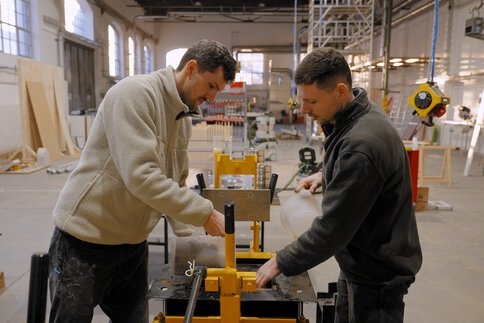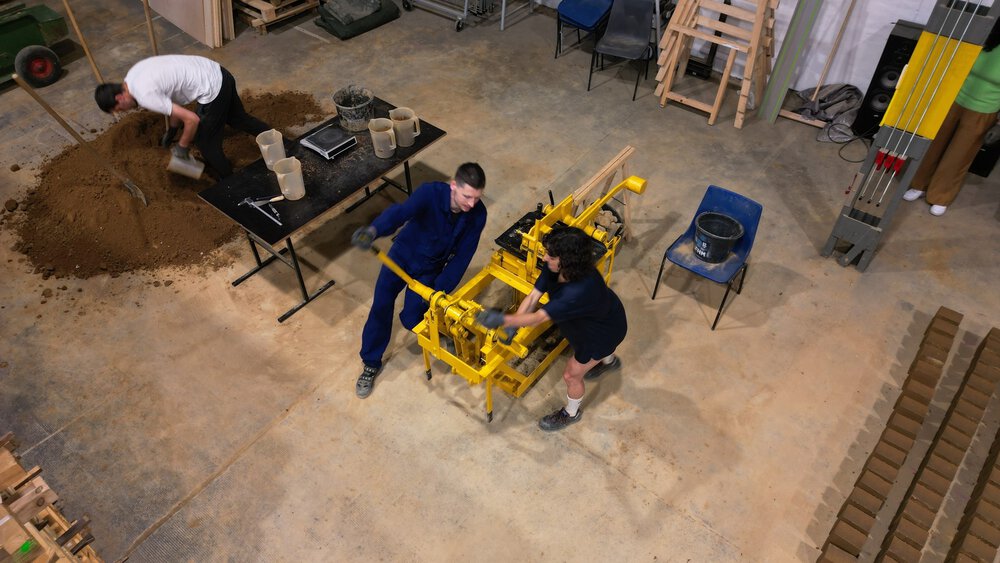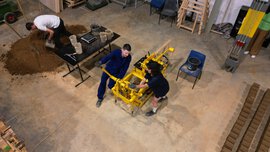From real-world laboratory to standard: project ProtoPotsdam
How can local materials and innovative construction concepts help to revolutionise the construction sector and at the same time make our built environment more climate-friendly?
The ProtoPotsdam project by Bauhaus Erde provides an answer to this question. In the summer of 2024, a temporary pavilion was built in the heart of Potsdam that, as a real-world laboratory and public space, will explore precisely these questions. Here, bio-based, regional materials and circular construction concepts are being tested with the research partners TU Berlin, HNEE and FH Potsdam.
The aim is to develop a construction method that is not only ecologically, but also socially and economically sustainable—a model that should have an impact beyond the Berlin-Brandenburg region.
The project was accompanied by a film collective for a year and a half during the research, design and construction phases.

Use of recycled materials
When planning the pavilion, the focus was on the existing foundations in the ground, on which the load-bearing round timber columns were placed directly. Recycled bricks form the base, which was laid using trass lime mortar so that it can be dismantled. Since the recycled concrete rubble is re-solidified in the compacted state by crushing and the addition of air, the load-bearing floor slab does not require the addition of fresh cement.
From waste to innovation
An unfired clay brick for load-bearing clay brickwork developed from construction waste in the Bauhaus Erde innovation laboratory in Marienfelde is used for the load-bearing walls. Based on the question of whether an expected regional demand for clay bricks could also be met with local material, the research focus, in addition to developing the recipe, was on analysing potential sources of resources. In a second step, clay blocks were produced from suitable samples and tested for their performance according to the specifications of the valid DIN. In 2023, the Bauhaus Earth research team received a building materials approval (tested according to DIN 18945:2023-06) for the clay blocks they had developed.
Pioneer timber for the roof construction
The widely overhanging roof is supported by round timber columns made of robinia. This hard, weather-resistant hardwood is a pioneer timber that grows back quickly and can adapt very well to changing climate conditions.









The ProtoPotsdam modules enable visitors to delve into the knowledge pool of regenerative building at their own pace. The permanent exhibition, which will open in autumn, illustrates the connection between the tangible material and the concept of ‘building within planetary boundaries’.
Bauhaus Erde, based in Potsdam and Berlin, is an interdisciplinary and international think-and-make-tank. The non-profit organisation is committed to the regenerative transformation of the built environment. Its vision is a future in which buildings, cities and landscapes proactively contribute to the recovery of the climate and have a positive influence on the planet and its inhabitants.

